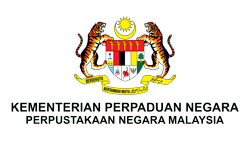The Way Home; The Isolated Emotional World of Former Leprosy Patients and Their Descendans
 |
|
| Judul : | The Way Home; The Isolated Emotional World of Former Leprosy Patients and Their Descendans |
| Pengarang : | Tan Ean Nee, Joshua Wong |
| Tahun Terbitan : | 2012 |
| Ringkasan : | The Way Home is not just any book about pain, injustice and hope, important as these themes are. On a subject like leprosy, the book acquires deeper meaning and greater urgency. Long after leprosy is no longer a health issue, researchers will probably continue to revisit the subject to explore how states and communities draw interior lines of exclusion. But for other groups of people, the clock is ticking down, for instance, Malaysian activists trying to prevent the involuntary resettlement of former suffers from their homes or to conserve these places as heritage sites. More importantly, as this book informs us, time is running down for former sufferers and their children. There is a wide range of stories told here, drawn from the authors’s dedicated work in interviewing former sufferers. We read about parents waiting in vain to see the children who were taken away at birth, parents who have been reunited with their children, and children seeking their parents, both alive or dead. regardless of outcome, these parents and children have been greatly affacted by the moment of separation and, in some positive cases, of reunion. Finally, the book is an apt reminder of the failings of modern medicine. The British colonial laws compulsory segregation mandated the removal of the leprosy sufferer from their community, their family and their children. These laws, since repealed, have a continuing influence in the shape of stigma, combined with traditional Asian beliefs about the disease. The draconian laws were justified in the name of serving the greater good and governed by assumptions about the superiority of modern science. Today, the fight against the disease cannot be left only to the experts and states. As civic-minded members of society, we have a duty to scrutinise these efforts and the discourses of crisis and the exclusion that underpin them. |
| No.Panggilan : | 362.1969980092 TAN M 362.1969980092 TAN D |












 03-2687 1700
03-2687 1700
 Hari Ini
Hari Ini Bulan Lepas
Bulan Lepas Jumlah Pelawat
Jumlah Pelawat